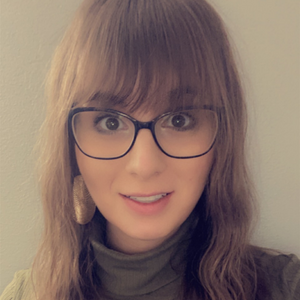What Can Be Done on World AIDS Day and Beyond
World AIDS Day is an opportunity to show support for people living with HIV as well as an opportunity to increase awareness on the work that still needs to be done when it comes to improving education and making HIV care inclusive and equitable.

alithia zamantakis, Ph.D., is a postdoctoral scholar at the Institute for Sexual and Gender Minority Health and Wellbeing (ISGMH) working on multiple projects including the HIV Implementation Science Coordination Initiative (ISCI). She reflects on her personal experience accessing HIV prevention care and how to address HIV care more holistically moving forward.
“My entrance into HIV work began through my experiences as a former sex worker. One day, I went to a clinic for my routine HIV/STI tests and the counselor took this opportunity to shame me. However, the counselor failed to understand that for many trans women, sex work is the one field where we can make a living,” said zamantakis. “This experience enraged me. If this was my experience, what were other trans women’s experiences—particularly trans women who don’t have the privileges that my whiteness and education afford me? That anger continues to fuel my work as an HIV researcher. I don’t engage in this work out of curiosity, profitability, or a desire to produce “knowledge” for knowledge’s sake. I engage in this work because we have a responsibility to ensure that oppressed and marginalized people have guaranteed access to equitable care.”
This year’s Word AIDS Day theme is achieving equity. Despite all the work and great progress that we have seen in HIV care, inequalities remain a barrier and are holding back further progress in ending the HIV epidemic. Dr. zamantakis explains what equitable HIV care looks like to her.
“To me, equity in HIV care looks like universal, holistic health care that is accessible and based in local communities and neighborhoods across the country,” she said. “It looks like funded and mandated sexual education from elementary school through adulthood. It looks like universal housing, employment, education, and legal and cultural efforts to end sexual violence. It looks like global reparations for colonization and imperialism, and US scholars supporting scholars across the continents of Africa, Asia, and Latin America but not dictating what happens nor basing their careers in research abroad.”
On this day, awareness activities take place around the world in observance of World AIDS Day to support and show solidarity with the many individuals affected by this epidemic. The theme can be seen as a call to action and prompts those in the field of HIV care to come together to address inequalities and help end the HIV epidemic.
“One of the biggest issues impeding success in ending the HIV epidemic is a lack of nationalized, universal health care,” zamantakis said. “We also need to focus on hiring, developing, and supporting researchers of color, transgender researchers, disabled researchers, working class researchers, and those at the intersections of these. How do we end the HIV epidemic, an epidemic that flourishes in inequity, when our very institutions are embedded in systemic inequity? In order to meet our EHE goals, those affected by HIV disparities should be at the table leading the conversation and getting paid to do so.”
We encourage you to make your voice heard this World AIDS Day and to learn more about what you can do to raise awareness, combat stigmas, contribute to help end inequities and thus end the AIDS epidemic. To learn more and get involved, visit the HIV.gov World AIDS Day website.